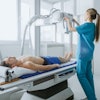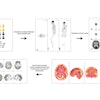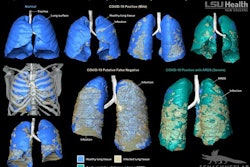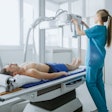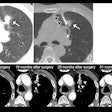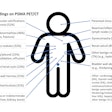Dear AuntMinnie Member,
It's become well-known that for all their effectiveness in preventing COVID-19 disease, vaccines for the novel coronavirus can cause bodily changes that are evident on medical imaging scans.
The latest research on the phenomenon involves the use of PET to visualize radiotracer uptake in the lymph nodes of cancer patients who were vaccinated. Researchers from the Mayo Clinic in Rochester, MN, used PET with FDG and carbon-11 radiotracers to demonstrate increased uptake in the axillary lymph nodes and ipsilateral deltoid. Our coverage of the study was the top story on AuntMinnie.com this past week.
In other news in our Molecular Imaging Community, the U.S. Food and Drug Administration has approved a new PET radiotracer designed to detect metastatic or recurrent prostate cancer by homing in on accumulations of prostate-specific membrane antigen. The radiotracer's developer believes the agent will prove more effective than conventional imaging in detecting disease.
And researchers from Germany used PET/MRI along with ultrasound to confirm suspicious findings in women with newly diagnosed metastatic breast cancer -- possibly obviating the need for invasive biopsy.
Get these stories and more in our Molecular Imaging Community.
Hair products pose problem in MRI
Radiologists have become familiar with the range of consumer products that can create artifacts and safety issues in MRI scanners. But powdered hair products may be a new one.
At the recent International Society for Magnetic Resonance in Medicine meeting, researchers discussed how powdered hair thickeners contain magnetic materials that can cause artifacts on MRI.
And there are new developments in the use of medical imaging to detect long-term complications of COVID-19 in college athletes. A new study found that cardiac MRI was able to detect seven times as many cases of myocarditis as other screening tools -- indicating that the modality should be added to the workup of athletes before they can return to competition.
Read all about it in our MRI Community.
Rothberg on AI
Finally, our coverage of the annual meeting of the Society for Imaging Informatics in Medicine (SIIM) wrapped up this week. Our top story so far has been a talk on May 25 by Jonathan Rothberg, PhD, on the potential of artificial intelligence (AI) and semiconductor technology to boost personalized medicine. Rothberg is the founder of both compact ultrasound developer Butterfly Network and portable MRI firm Hyperfine, so his thoughts are worth your attention.
Other coverage of SIIM 2021 includes a talk on AI and healthcare interoperability, the use of AI to improve clinical decision support, and a study that used AI to identify inferior vena cava filters that have been left behind in patients after surgery.
